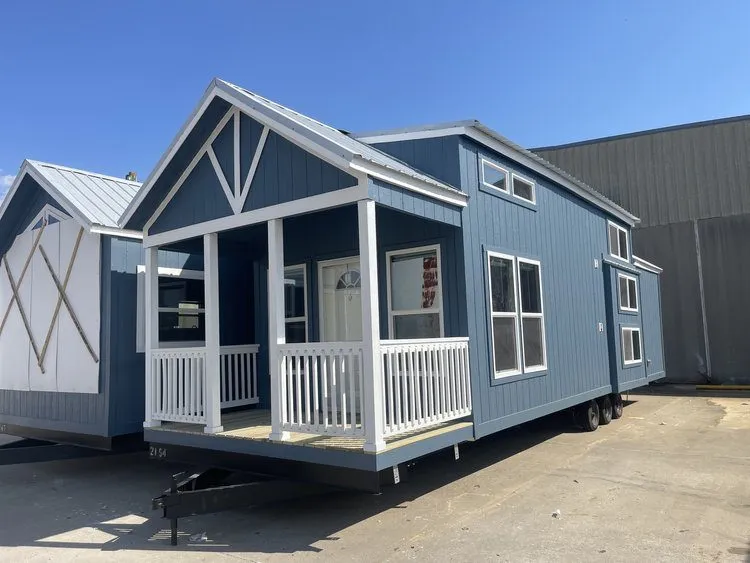The hunt for houses for sale near me is one the hottest real estate trends and with good reason. Today’s homebuyers want immediacy and convenience and a lifestyle that meets their ever-shifting modes. No matter if you’re a first time homebuyer, an entrepreneur hoping to profit from trends, or someone looking for a fresh beginning, the process in 2024 is more different any of us have ever seen in the past.
Technology has ushered real estate from mere listings and Sunday open houses into the fast-paced, dynamic and increasingly digital experience that it is today. This guide isn’t just about finding a house; it’s about finding your home a place that’s smart, sustainable and synced up with your lifestyle. Let’s take a deep dive into the actual secrets most guides don’t tell you.
Why Buying a Home in 2024 Is Different
Back in the day, you’d look at the number of bedrooms and bathrooms, and that was about it. Today? It’s apples and oranges. Three of the goodies, though, especially when it comes to transportation, are no longer just nice add-ons: They’re musts.
Here’s why:
- Rising Interest Rates: You need to be smarter about financing than ever.
- Changing Demographics: Millennials and Gen Z now dominate the buying market—and they have different priorities.
- Technology Invasion: From AI-driven real estate platforms to virtual tours, tech is speeding up every part of the process.
Today’s buyers are looking for homes that aren’t just solid structures but ones that actually think—adjusting your lighting, securing your doors remotely, saving you thousands on energy bills. If you’re not buying smart, you’re buying behind.
And don’t forget lifestyle: proximity to downtown? Not as big of a deal anymore. Instead, it’s all about being near what matters personally parks, fiber internet, schools, and artisan coffee shops.
Understanding the Smart Home Revolution
Forget sci-fi movies. 2024 and smart homes are routine. Picture a home that learns your routines, cuts your energy bills, keeps you safe, and even makes your morning coffee before you get out of bed. With smart thermostats such as Nest, energy-efficient appliances, AI-driven lighting systems and fully integrated security arrangements, today’s homes do a lot more than just provide shelter: they cater to your needs.
Top must-have features include:
- Smart Thermostats: Adjust automatically to save money and boost comfort.
- Security Systems: Video doorbells, motion detectors, remote access alarms.
- Smart Kitchens: Refrigerators that suggest recipes? Yes, please.
- Voice-Controlled Everything: Lights, music, locks—you name it.
And let’s be real: in a world where your phone knows more about you than your mom does, shouldn’t your house, too?
Why “Houses for Sale Near Me” Searches Are So Popular
Typing “houses for sale near me” into your browser is almost instinctive now, right? That’s because modern buyers prioritise locality they want something close to work, friends, family, or favorite hangouts.
But there’s a twist: while broad searches show you cities to move to, “near me” searches focus on lifestyle and community fit. It’s about finding a place that feels like home right away, not after months of adjustment.
And here’s the kicker: real estate websites and search engines are optimizing heavily for local search intent, so using hyper-local strategies when you search gives you the inside track over casual browsers.
How Algorithms Influence Local Listings

Ever wonder why certain listings pop up first when you search “houses for sale near me”?
It’s not random.
Real estate platforms use algorithms that prioritise:
- Sponsored Listings (agents paying to feature)
- Properties Matching Your Previous Clicks
- Popular Neighborhood Trends
Understanding this helps you outsmart the system. Don’t just click on the first few results. Dig deeper. Customise filters. Explore new tabs. You might find hidden gems that others miss because they only scan the top of the page.
Optimizing Your Home Search: Pro Moves for 2024
Most articles tell you to “browse Zillow” and “call a real estate agent”. Duh. Let’s level up:
1. Expand Beyond Major Platforms
Besides Zillow and Redfin, check:
- Local MLS sites
- Facebook Marketplace (surprisingly active for FSBO listings)
- Foreclosure and auction sites (HUD Homes, Auction.com)
Set alerts on multiple apps. The more platforms you monitor, the better chance you have at scoring a deal before someone else.
2. Master Google Maps for House Hunting
Google Maps isn’t just for directions. Use it to:
- Spot new developments
- Check commute times from multiple areas
- See if the neighborhood has things like gyms, coffee shops, parks
Bonus tip: Look for areas with lots of construction and renovations. It usually signals a booming neighbourhood on the rise.
Working with a Local Buyer’s Agent (the Smart Way)
Hiring any realtor won’t cut it. In 2024, you need an agent who:
- Knows your target neighborhoods inside-out
- Has access to pocket listings (homes not yet officially listed)
- Can negotiate aggressively in tight markets
Pro Tip: Interview at least three agents. Ask them:
- “How many homes have you closed in this ZIP code?”
- “What’s your strategy when multiple offers are expected?”
- “Can you get me into off-market properties?”
A good agent can mean the difference between your dream home and endless regret.
Hidden Costs You Must Watch Out For
Most buyers just see the sticker price. Big mistake. Real cost = price + hidden costs.
Here’s what to watch:
- Property Taxes: Can vary wildly by county.
- HOA Fees: Some can be $200–$500/month.
- Closing Costs: Budget 2–5% of purchase price.
- Renovation Costs: Especially for older homes; budget $20,000+.
Always calculate your true monthly payment before you fall in love with a house.
How to Spot a Good Deal vs a Money Pit
Learn to read between the lines:
- Good Deals:
- Below market price
- Reasonable DOM (Days on Market)
- Motivated sellers (recent price drops)
- Below market price
- Bad Investments:
- No inspections allowed (huge red flag)
- Overpriced based on comps
- Flipped homes with quick, cheap renose
- No inspections allowed (huge red flag)
When in doubt, bring a trusted inspector or contractor to walkthroughs before making an offer.
Alternative Ways to Find Houses for Sale Near You
Looking beyond the usual paths can uncover gold:
- Drive Around: Spot “For Sale” signs not listed online.
- Network Locally: Facebook groups, Nextdoor forums often post insider info.
- Expired Listings: Homes that didn’t sell the first time might be relisted privately at a discount.
Persistence and creativity win in competitive markets.
Final Tips Before You Buy
Buying a home isn’t a sprint; it’s a marathon with hurdles.
Here’s your checklist:
- Get Pre-Approved: Not just pre-qualified.
- Tour at Different Times: Noise and traffic change throughout the day.
- Research Future Developments: A new mall or school could boost (or hurt) property value.
- Think Long-Term: Is this home a 3-year plan or a 10-year investment?
Smart home buying is all about playing chess, not checkers.
Conclusion
Finding houses for sale near me in 2024 isn’t just about being faster—it’s about being smarter. Use niche strategies, dig into hyper-local trends, leverage off-market deals, and demand smart features that future-proof your investment. The home of your dreams isn’t just out there; it’s waiting for someone sharp enough to spot it.
Start your search today but remember: buy smarter, live better.
FAQs
1: How can I find homes for sale that aren’t available online?
Search for off-market opportunities through local agents, Facebook groups and by driving through neighborhoods to spy signs.
Q2: What smart features should a 2024 home definitely have?
Smart thermostats, full-home security systems, energy-efficient appliances and integrated voice-controlled systems are just a few of the things to look for.
Q3: New development vs. established neighborhood? What’s the better buy?
It depends on your goals. New developments may offer modern amenities but can lack established community vibes.
Q4: What are “pocket listings” and why do they matter?
Pocket listings are homes for sale not yet publicly listed, offering buyers less competition and sometimes better deals.
Q5: Should I still work with a realtor if I’m finding homes myself online?
Absolutely. A skilled local agent can negotiate better deals, find hidden listings, and guide you through complex contracts.










